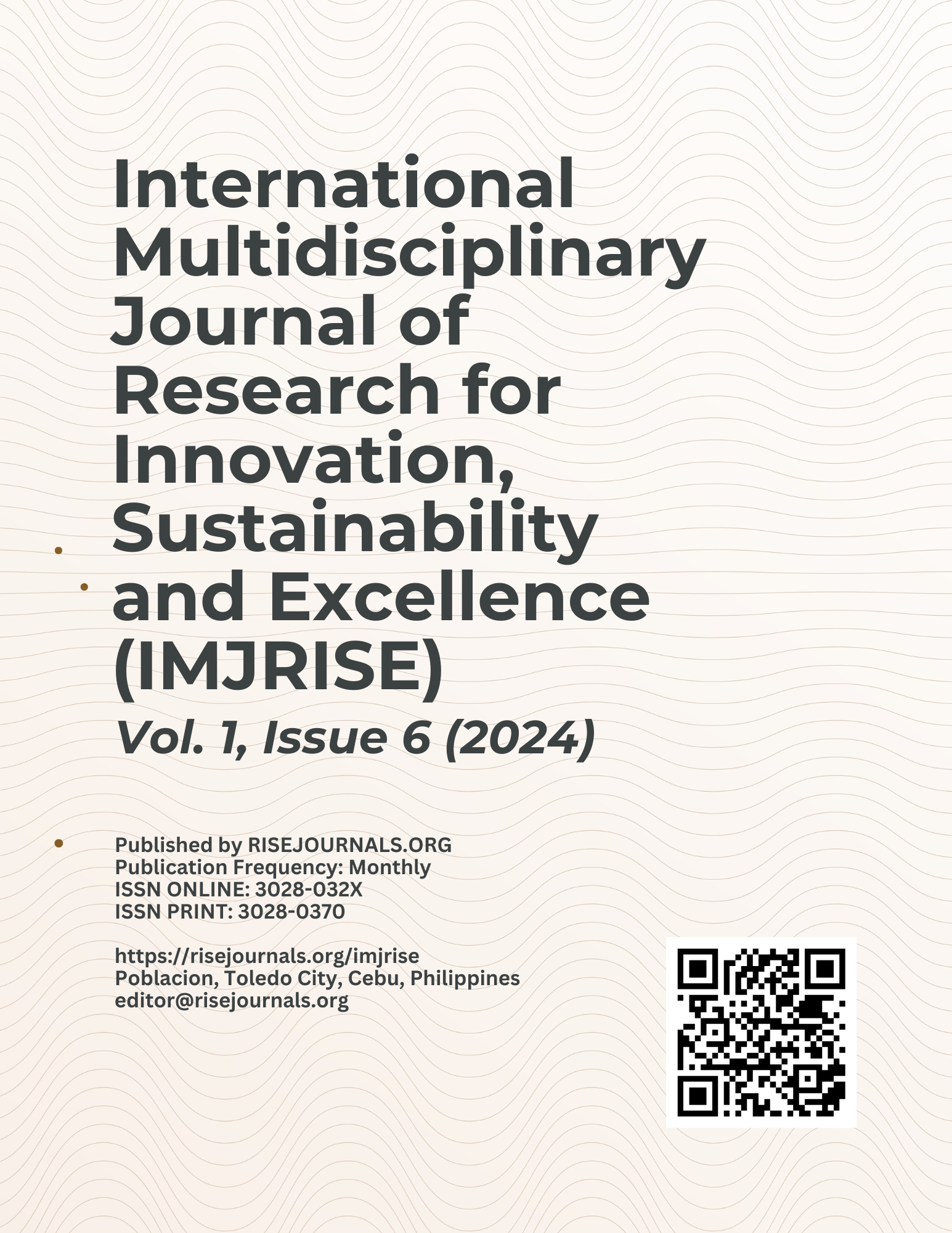Understanding Sustainable Leadership: A Review and Forward Outlook
Keywords:
Sustainable leadership, Environmental stewardship, Social responsibility, Ethical conduct, Stakeholder engagementAbstract
This study delves into the concept of sustainable leadership, examining its evolution, meaning, and comparative analysis with other leadership styles. Sustainable leadership emerges as a holistic approach that integrates environmental, social, and economic considerations into organizational practices and decision-making processes. It emphasizes long-term viability, environmental stewardship, and social responsibility, prioritizing ethical conduct, stakeholder engagement, and responsible decision-making. Through a comparative lens, sustainable leadership is juxtaposed with transformational, servant, ethical, authentic, regenerative, and responsible leadership styles, highlighting both similarities and distinctions. While sustainable leadership shares common principles with other styles, such as vision, empowerment, and genuine behaviors, it distinguishes itself by incorporating sustainability principles into leadership practices. This abstract encapsulates the essence of sustainable leadership as a paradigm shift in leadership thinking, calling for a more inclusive, environmentally conscious, and socially responsible approach to leadership.
References
Andrin, G., Kilag, O. K., Groenewald, E., Unabia, R., Cordova Jr, N., & Nacario, K. M. (2023). Beyond Management: Cultivating Leadership in Educational Institutions. Excellencia: International Multi-disciplinary Journal of Education (2994-9521), 1(6), 365-375.
Ansell, C., & Gash, A. (2008). Collaborative governance in theory and practice. Journal of public administration research and theory, 18(4), 543-571.
Avolio, B. J., & Gardner, W. L. (2005). Authentic leadership development: Getting to the root of positive forms of leadership. The leadership quarterly, 16(3), 315-338.
Avolio, B. J., Walumbwa, F. O., & Weber, T. J. (2009). Leadership: Current theories, research, and future directions. Annual review of psychology, 60, 421-449.
Bass, B. M., & Bass Bernard, M. (1985). Leadership and performance beyond expectations.
Bass, B. M., & Riggio, R. E. (2006). Transformational leadership. Psychology press.
Brown, M. E., & Mitchell, M. S. (2010). Ethical and unethical leadership: Exploring new avenues for future research. Business ethics quarterly, 20(4), 583-616.
Brown, M. E., & Treviño, L. K. (2006). Ethical leadership: A review and future directions. The leadership quarterly, 17(6), 595-616.
Cabantous, L., Gond, J. P., Harding, N., & Learmonth, M. (2016). Critical essay: Reconsidering critical performativity. Human Relations, 69(2), 197-213.
Dent, E. B., & Goldberg, S. G. (1999). Challenging “resistance to change”. The Journal of applied behavioral science, 35(1), 25-41.
Denison, D. (1990). Corporate culture and organizational. New York: Wiley. Dike, P.(2013). The impact of workplace diversity on organizations. Dobbin, F., & Jung, J.(2010). Corporate board gender diversity and stock performance: The competence gap or institutional investor bias. NCL Rev, 89, 809.
Dunphy, D., & Benn, S. (2013). Leadership for sustainable futures. In Organizational Change, Leadership and Ethics (pp. 195-215). Routledge.
Eisenbeiss, S. A. (2012). Re-thinking ethical leadership: An interdisciplinary integrative approach. The Leadership Quarterly, 23(5), 791-808.
Gond, J. P., & Carton, G. (2022). The performativity of theories. In Handbook of Philosophy of Management (pp. 159-181). Cham: Springer International Publishing.
Greenleaf, R. K. (2002). Servant leadership: A journey into the nature of legitimate power and greatness. Paulist press.
Heifetz, R. A., Grashow, A., & Linsky, M. (2009). The practice of adaptive leadership: Tools and tactics for changing your organization and the world. Harvard business press.
Jackson, T. (2005). Motivating sustainable consumption. Sustainable Development Research Network, 29(1), 30-40.
Judge, T. A., & Piccolo, R. F. (2004). Transformational and transactional leadership: a meta-analytic test of their relative validity. Journal of applied psychology, 89(5), 755.
Kaptein, M., & Van Tulder, R. (2017). Toward effective stakeholder dialogue.
Kilag, O. K., & Malbas, M. (2024). The Interplay of Instructional Leadership and Self-Leadership: A Study on School Leaders' Self-Efficacy. International Multidisciplinary Journal of Research for Innovation, Sustainability, and Excellence (IMJRISE), 1(2), 158-163.
Lozano, R., Merrill, M. Y., Sammalisto, K., Ceulemans, K., & Lozano, F. J. (2017). Connecting competences and pedagogical approaches for sustainable development in higher education: A literature review and framework proposal. Sustainability, 9(10), 1889.
Maak, T., & Pless, N. M. (2006). Responsible leadership in a stakeholder society–a relational perspective. Journal of business ethics, 66, 99-115.
Pfeffer, J. (2010). Building sustainable organizations: The human factor. Academy of management perspectives, 24(1), 34-45.
Reed, M. S. (2008). Stakeholder participation for environmental management: a literature review. Biological conservation, 141(10), 2417-2431.
Schaltegger, S., & Wagner, M. (2011). Sustainable entrepreneurship and sustainability innovation: categories and interactions. Business strategy and the environment, 20(4), 222-237.
Senge, P., Hamilton, H., & Kania, J. (2015). The dawn of system leadership. Stanford Social Innovation Review, 13(1), 27-33.
Tulder, R. V., & Kolk, A. (2001). Multinationality and corporate ethics: Codes of conduct in the sporting goods industry. Journal of international business studies, 32, 267-283.
Uy, F., Vidal, E., Kilag, O. K., Ompad Jr, V., Kiamco, I., & Padilla, K. (2024). The Art and Science of Leadership: A Humanities Perspective. International Multidisciplinary Journal of Research for Innovation, Sustainability, and Excellence (IMJRISE), 1(2).
Waddock, S., & Googins, B. K. (2011). The paradoxes of communicating corporate social responsibility. The handbook of communication and corporate social responsibility, 23-43.
Waldman, D. A., Siegel, D. S., & Javidan, M. (2006). Components of CEO transformational leadership and corporate social responsibility. Journal of management studies, 43(8), 1703-1725.
Yukl, G. (2012). Effective leadership behavior: What we know and what questions need more attention. Academy of Management perspectives, 26(4), 66-85.


